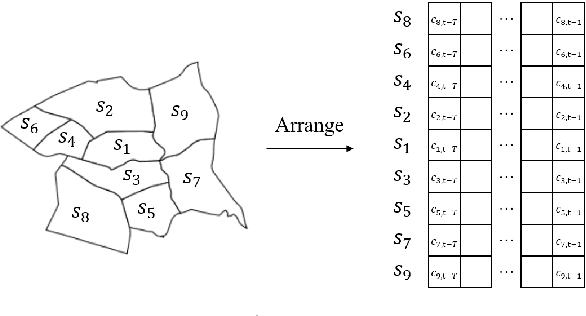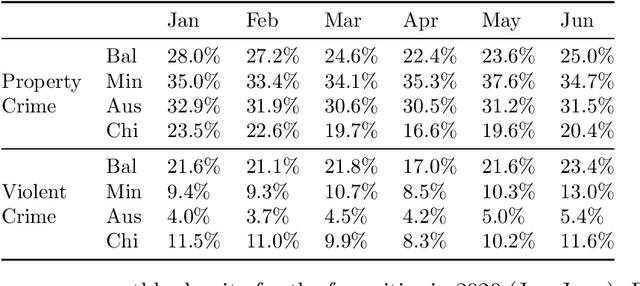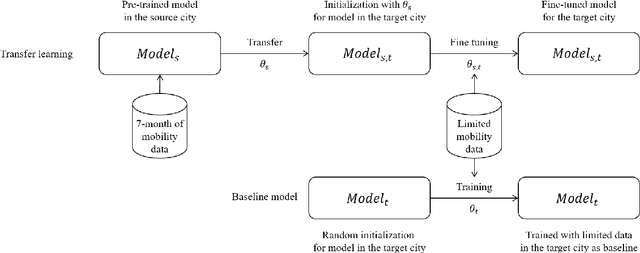Network-Based Transfer Learning Helps Improve Short-Term Crime Prediction Accuracy
Paper and Code
Jun 10, 2024



Deep learning architectures enhanced with human mobility data have been shown to improve the accuracy of short-term crime prediction models trained with historical crime data. However, human mobility data may be scarce in some regions, negatively impacting the correct training of these models. To address this issue, we propose a novel transfer learning framework for short-term crime prediction models, whereby weights from the deep learning crime prediction models trained in source regions with plenty of mobility data are transferred to target regions to fine-tune their local crime prediction models and improve crime prediction accuracy. Our results show that the proposed transfer learning framework improves the F1 scores for target cities with mobility data scarcity, especially when the number of months of available mobility data is small. We also show that the F1 score improvements are pervasive across different types of crimes and diverse cities in the US.
 Add to Chrome
Add to Chrome Add to Firefox
Add to Firefox Add to Edge
Add to Edge